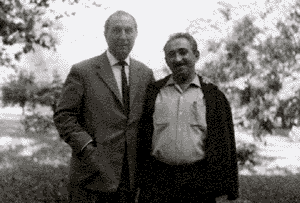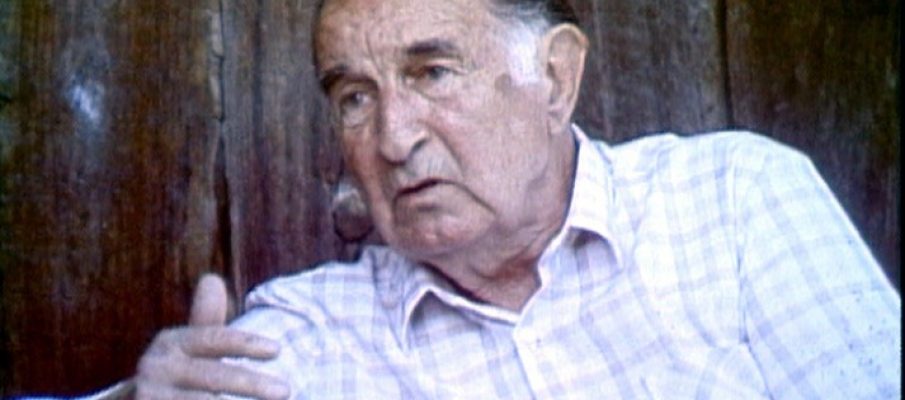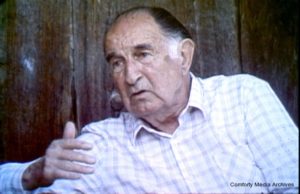Anton Kirilov was a judge and friend of Niko Nissimov since their high school times. in 1942 Niko was drafted to serve as a pharmacist in the state’s hospital in Xanti, a territory newly annexed by Bulgaria.
By the summer of 1942, Bulgaria had a Commissariat for Jewish Affairs. It was headed by Alexander Belev, a notorious anti- Semite. He zealously implemented every Nazi order.
Soon after, Bulgaria allowed Nazi Germany to deport to the death camps all Bulgarian Jewish citizens living in other countries under Nazi occupation.
By early February, 1943, Bulgaria signed with Nazi Germany a top secret agreement: 20,000 Jews from both Bulgaria and its occupied territories were to be deported to death camps in Poland.
First,4,000 Jews were to be rounded up from the Bulgarian- occupied territories in Greece.The plan was to transport them by train through Bulgaria. Late in February 1943 many trains loaded with soldiers headed south to implement the deportation. Belev came to personally oversee the operation.
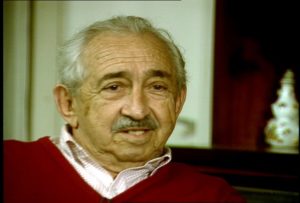
Niko Nissimov:
“I was in Xanti until March 3, 1943. At 3 in the morning, they pounded on the door and said, “Please come down immediately. Bring 40 kilos of luggage.” And they took us, along with all the Jews of Greece, on the way to Auschwitz.” We got on the train in Greece and went to the Bulgarian border town, Petrich. There we were transferred to a narrower Bulgarian train. All along the way we saw Jewish forced laborers.
As we passed by, these Jews threw us money and bread. They understood we had none.
My brother happened to be working there, and he saw me in one of the cars. That same night he managed to go back to Sofia, to two of my friends—Christians.”
“Niko’s friend, Nasko, told me what happened. We decided to look for Niko the next day. We met at the train station the next morning. We left with the first train.
We arrived in the town of Dupnitza, and we went to the Jewish community. They took us to the tobacco warehouse where Niko was held. In the entrance was a big gate. We were left to wait there.
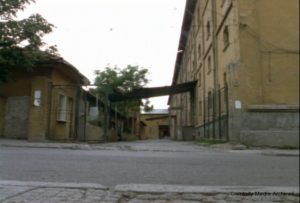
“The yard was an ugly picture: old Jews with beards—poor them!—small children running around, unaware of their fate. We sat there and waited.
And all of a sudden, here comes Niko out of the crowd. He came, we hugged him. I think it was his birthday. We calmed him down: ‘Now that we’ve found you, we will do everything to free you.’”
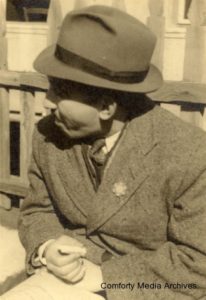
Niko Nissimov:
“We were eleven Jews from Bulgaria, doctors and pharmacists. My two friends went back to the health department in Sofia, and got us transferred.
Then, my friends returned and gave us the letters of transit. The guards said, ‘Ok, leave. Take a train to where you’ve been stationed.’
That was, of course, March 1943. From March 3rd through the 14th, I was on the train on the way to Auschwitz, none of the others came back, not even one of them.”
Anton Kirilov:
“That’s how it was, a terrible period. What a terrible thing, to feel chased and persecuted like a dog, like a wild animal. To be searched at any time . . . .
Yes, everything is behind us—it’s forgotten. In Bulgaria today some people say there was no fascism here during the war. I beg your pardon? There was no fascism in Bulgaria?”
